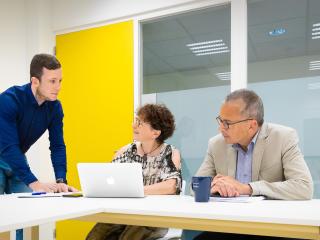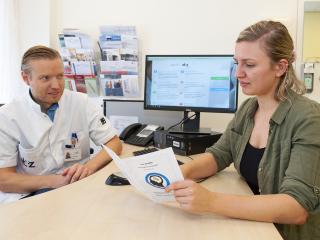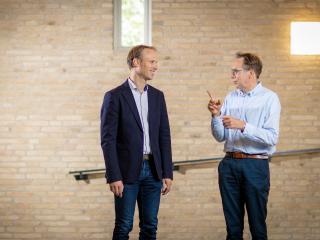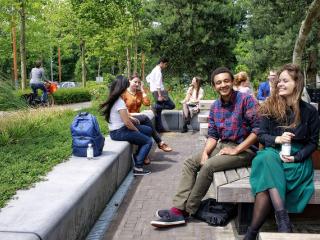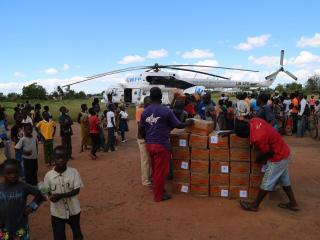Climate and energy community brings scientists together
The climate: newspapers, social media, and political campaigns are full of it. Does the climate problem exist at all? How do we achieve climate and energy targets? What is required to change legislation, collaboration, behavior, and thinking? In 2017, the Community on Climate Change and Energy Transition was launched as part of Tilburg University's Impact Program. The aim is to bring scientists together and to put Tilburg University on the map as a university where socially relevant research is carried out.
‘We feed the political and social debate’
“The Community is not an official institution,” says Martijn Groenleer, professor of regional law and governance and driving force of the Community. “It is a voluntary—but not optional—way of working together across the Tilburg University Departments and Schools. The focus is on climate change and energy transition and how science can contribute to the debate on these issues.” In that respect, the collaboration is in line with the nature of the problem: not thinking in terms of boxes, but a broad approach."
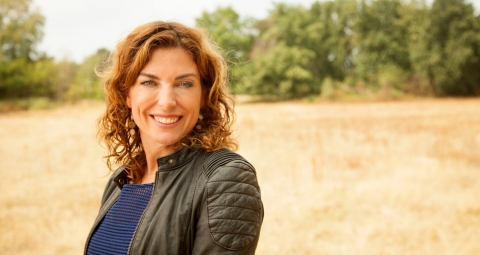
‘It is a big, complex puzzle that we have to put together’
- Saskia Lavrijssen
Complex puzzle
“Climate change and energy transition are themes in which many different disciplines play a role,” adds Saskia Lavrijssen, professor of economic regulation and governance of network industries. “Legislation, behavior, governance structure; it has an effect on whether or not the climate targets are achieved. That is why we need to look at these issues from all these disciplines. It's a big, complex puzzle that we have to put together.” Groenleer: “The discussion is shifting from technological innovation to necessary social innovation. From heat pumps and wind turbines to, for example, rules for their usage, models for financing, or arrangements for participation. These questions are being asked more and more often. We do not have the answers, but we can study how these wicked problems work and make suggestions regarding how we can work on problem-solving approaches from there. We feed the debate.”
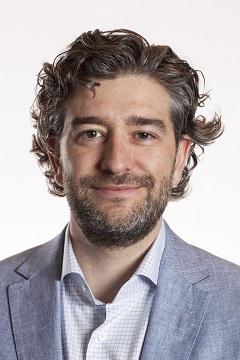
‘The climate debate is shifting from technological to social innovation'
- Martijn Groenleer
Role of the university
"Universities are funded with public funds and therefore rightly viewed critically," says Lavrijssen. "If, in addition to fundamental research, we do not contribute to the search for answers to relevant social questions, then what do we matter? Just as society is changing as a result of globalization, big data, and Artificial Intelligence, so should the university. Interdisciplinary collaboration and collaboration with social partners often leads to even better publications."
Projects and partners
Scientists who are part of the Community work together in projects, among other things. An example is the European-funded SMILE project, led by Groenleer. Within this project, experiments are being carried out in ten neighborhoods in the region around Tilburg to encourage residents to make their homes energy-neutral. Proposals for new projects are under development. In addition to governments such as the Province of Noord-Brabant and the Tilburg Municipality, the community works together with various social and private bodies, including the Association for Energy, Environment and Water. This is a knowledge center and represents the interests of corporate electricity, gas, and water consumers. In view of the provincial elections, the Community also organized a well-attended election debate on climate and energy.
Explanation in the House of Representatives
The Community makes it easier to see where which expertise on climate and energy is located within the university. Groenleer: “It also shows society that this expertise is crucial in current political and social discussions.” For example, Lavrijssen was invited to explain in the House of Representatives what measures are needed to facilitate the integration of green electricity into the power grid. As one of the members of the Energy Brigade of the Topsector Energy, Groenleer draws national attention to the role of social aspects of the energy transition. Lavrijssen: "Fundamental research and publishing internationally remain important. In addition, research in collaboration with social partners is necessary as well as more practice-oriented contributions."




